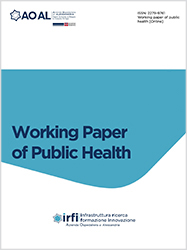Medication adherence in patients with carotid artery stenosis before/after enrollment in CARUSO study
All claims expressed in this article are solely those of the authors and do not necessarily represent those of their affiliated organizations, or those of the publisher, the editors and the reviewers. Any product that may be evaluated in this article or claim that may be made by its manufacturer is not guaranteed or endorsed by the publisher.
Authors
Background: this work analyses the medical therapy adherence of patients enrolled in a clinical study. The primary end- point of this research is to find out if enrolment in a clinical study can improve adherence to antiplatelet and/or lipid- lowering therapy.
Materials and Methods: the first 92 asymptomatic patients with carotid artery stenosis ≥50% enrolled in the CARUSO study were considered. Overall baseline “compliance” to anti-platelet treatment was stratified in patients with good, average, and poor adherence.
Results: overall compliance with anti-platelet therapy was good for 66 patients (95.7%) out of 69 patients already under this treatment. A significant correlation between good adherence to pharmacological therapy and the presence of previ- ous cardiovascular events at the time of enrolment: 92.3% (one event), 84.6% (two events), 50% (three events) vs 35.1% of those without events (p<0.001). After 6 months, good adherence was found to extend even to patients with no previ- ous events (p=0.083).
Conclusions: this research showed a positive trend in improving adherence to lipid-lowering therapy (88.3% vs 56.7%, p=0.002) and maintenance of a high level (> 95%) of adherence to anti-platelet therapy, after the enrolment in a clinical study.
How to Cite

This work is licensed under a Creative Commons Attribution-NonCommercial 4.0 International License.







